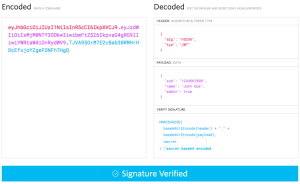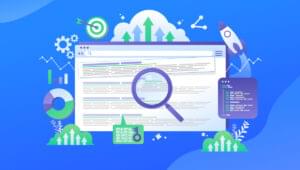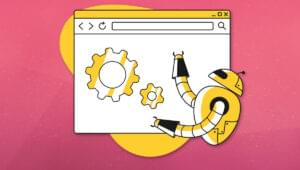 GNU and Free Software Foundation founder Richard Stallman has some strong thoughts about the idea that some or all software should transition to the cloud, an idea that is backed by many of today’s software and computing giants including Google, Microsoft, Adobe, Amazon, and Apple. “It’s stupidity. It’s worse than stupidity: it’s a marketing hype campaign,” Stallman told the Guardian newspaper.
Why does Stallman feel so strongly about cloud computing? It’s kind of hard to tell, but somewhere in his tirade is a cogent point out loss of consumer control when everything transitions to the cloud.
GNU and Free Software Foundation founder Richard Stallman has some strong thoughts about the idea that some or all software should transition to the cloud, an idea that is backed by many of today’s software and computing giants including Google, Microsoft, Adobe, Amazon, and Apple. “It’s stupidity. It’s worse than stupidity: it’s a marketing hype campaign,” Stallman told the Guardian newspaper.
Why does Stallman feel so strongly about cloud computing? It’s kind of hard to tell, but somewhere in his tirade is a cogent point out loss of consumer control when everything transitions to the cloud.
One reason you should not use web applications to do your computing is that you lose control. It’s just as bad as using a proprietary program. Do your own computing on your own computer with your copy of a freedom-respecting program. If you use a proprietary program or somebody else’s web server, you’re defenseless. You’re putty in the hands of whoever developed that software. — Richard StallmanThe reaction to Stallman’s rant on the blogosphere has been very mixed. More than one commenter on Hacker News has compared him to Don Quixote. But Stallman has something of a valid point, if expressed with perhaps more than a bit of hyperbole. Web applications do raise some inherent privacy concerns, as well as concerns about who actually owns the application you’re using and what happens to your data when you put it into the app. From the mainstream perspective, this has never been embodied for me better than in a conversation I had a few months ago with my girlfriend about Google Docs. At the time, I printed the conversation (paraphrased and heavily edited to remove the bits where I had to explain how various aspects of web applications work) in a post on ReadWriteWeb arguing the necessity for web apps on the desktop . That conversation is relevant here, too, though.
Her: “So where are my documents stored?” Me: “On Google’s servers.” Her: “And I don’t actually own the software?” Me: “No, you just sort of rent it.” Her: “So if Google goes down, or decides to stop making Docs, they take my software and documents with it?” Me: “Theoretically that could happen, yeah.” Her: “And if there’s a security breach my documents are there for the taking?” Me: “Technically, yes.” Her: “That’s kinda creepy…. I don’t think I like that.”I think her view is a fairly common one expressed by mainstream users. Rightly or wrongly, the idea that your documents (or photos, or videos, or whatever) and personal data are off somewhere on some server interacting with software that you have no control over, in an environment that you have no control over is a scary one. It will make cloud applications a tough sell for the mainstream. That’s why some companies are betting on the client plus the cloud as the future computing model. That might alleviate concerns users have about being locked into a single system, especially when combined with principles of data portability. Of course, Stallman’s rant went a bit over the top. Cloud computing is clearly not stupidity. The term may have been co-opted for marketing purposes and twisted over the past few years, but the general concept is sound and has promise.
Frequently Asked Questions (FAQs) about Richard Stallman and GNU
Who is Richard Stallman and what is his significance in the field of computing?
Richard Stallman is a renowned computer programmer and a staunch advocate for free software. He is the founder of the GNU Project, which was instrumental in the development of the free software movement. Stallman’s contributions to computing extend beyond software development. He is also known for his work on the GNU General Public License, which is designed to ensure software remains free for all users.
What is the GNU Project?
The GNU Project is an initiative launched by Richard Stallman in 1983. The project’s primary goal was to create a completely free and open-source Unix-like operating system. The term “GNU” is a recursive acronym for “GNU’s Not Unix”, highlighting the project’s aim to replicate the functionality of Unix, but with entirely free software.
What is Stallman’s stance on cloud computing?
Stallman has been vocal about his concerns regarding cloud computing. He believes that it compromises users’ control over their data and privacy. According to Stallman, relying on cloud computing is a “trap” because it often involves using proprietary software, which goes against the principles of the free software movement.
What is the free software movement?
The free software movement is a campaign initiated by Richard Stallman. It advocates for the rights of computer users to use, study, modify, and distribute software. The movement is not against paying for software, but rather against the restrictions placed on users by proprietary software.
What is the GNU General Public License (GPL)?
The GNU General Public License (GPL) is a widely used free software license that guarantees end users the freedom to run, study, share, and modify the software. The license was created by Richard Stallman for the GNU Project.
What is Stallman’s view on proprietary software?
Stallman is a strong critic of proprietary software. He believes that it restricts users’ freedom by preventing them from studying, modifying, and sharing the software. He argues that such restrictions are unethical and against the spirit of the computing community.
How has Stallman’s work influenced the open-source movement?
Stallman’s work has had a profound impact on the open-source movement. His creation of the GNU Project and the GPL has paved the way for the development and distribution of numerous free software. His advocacy for software freedom has also influenced the ethos of the open-source community.
What is Stallman’s contribution to programming languages?
Stallman has made significant contributions to programming languages. He is the original developer of several widely used software programs, including the GNU Compiler Collection, GNU Emacs, and the GNU Debugger. These tools have played a crucial role in the development of free software.
What is Stallman’s perspective on digital rights?
Stallman is a vocal advocate for digital rights. He believes that all users should have the freedom to control their own computing and opposes practices that infringe upon these rights, such as digital rights management (DRM) and software patents.
What is the significance of the GNU operating system?
The GNU operating system is significant as it is entirely composed of free software. It allows users complete freedom to run, study, modify, and share all the software it contains. It has also served as the basis for many other operating systems, most notably, Linux.
 Josh Catone
Josh CatoneBefore joining Jilt, Josh Catone was the Executive Director of Editorial Projects at Mashable, the Lead Writer at ReadWriteWeb, Lead Blogger at SitePoint, and the Community Evangelist at DandyID. On the side, Josh enjoys managing his blog The Fluffington Post.



